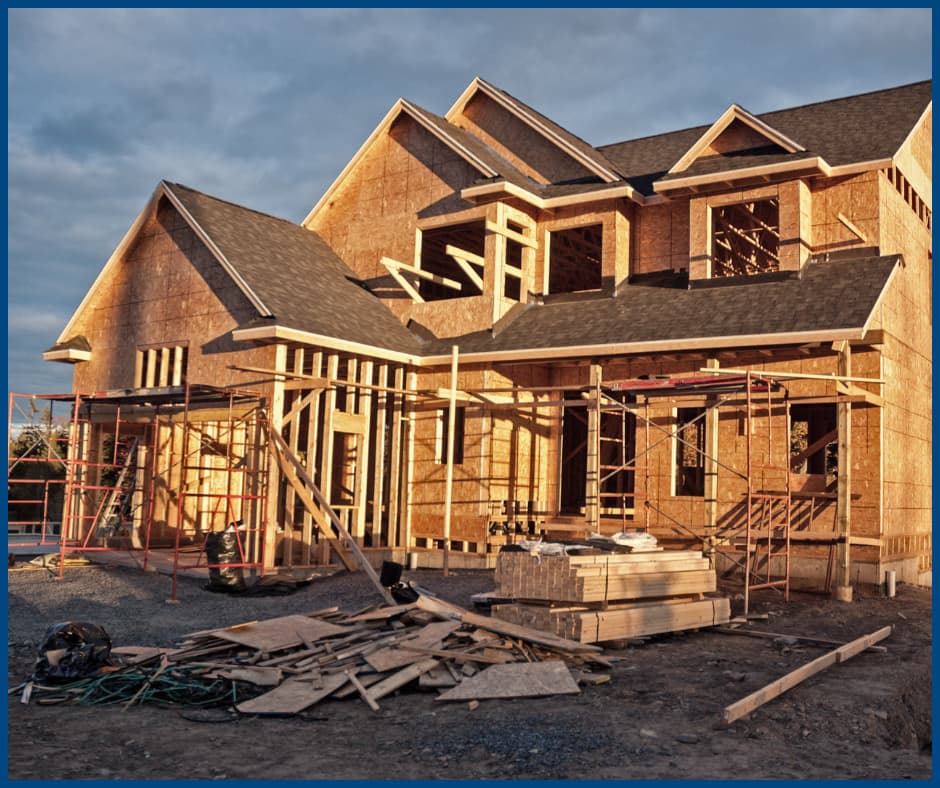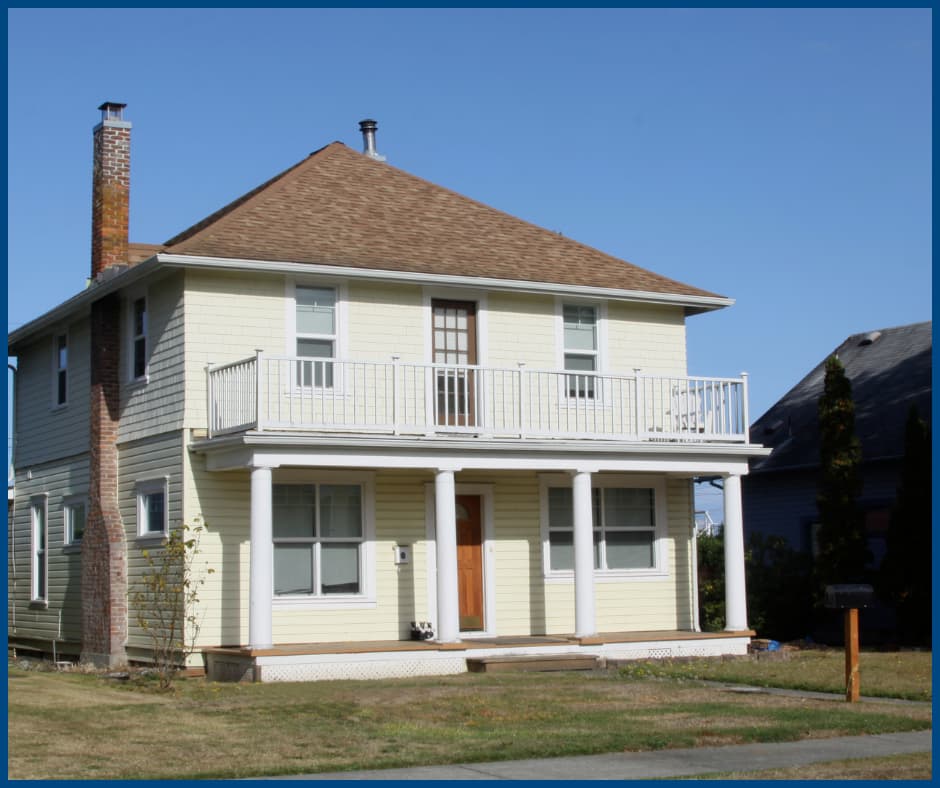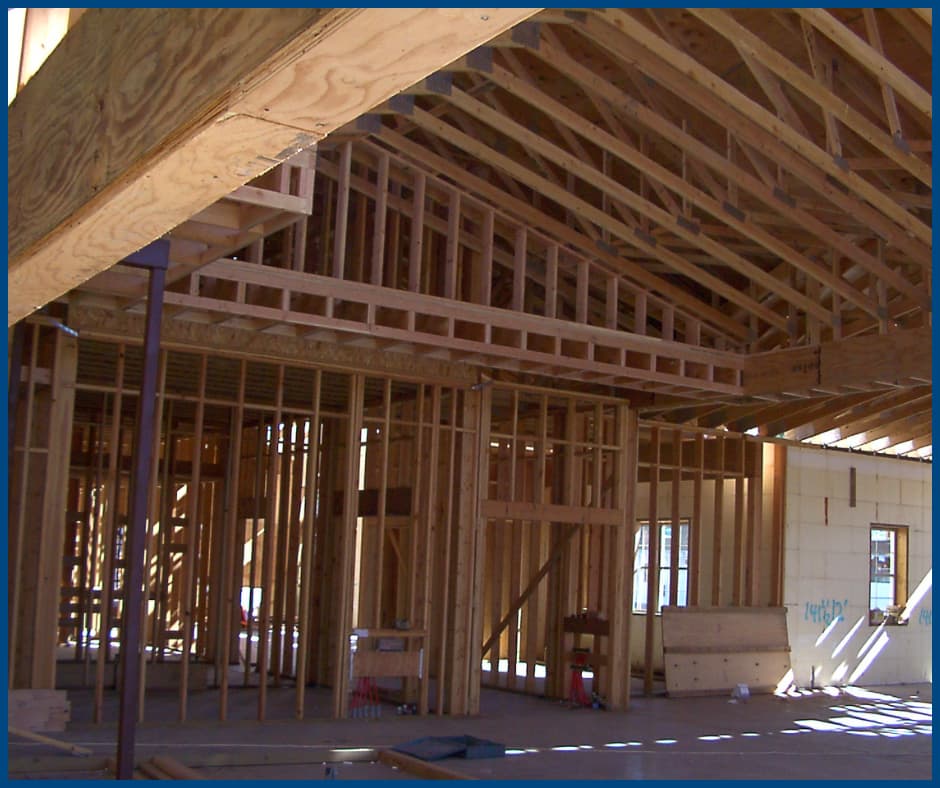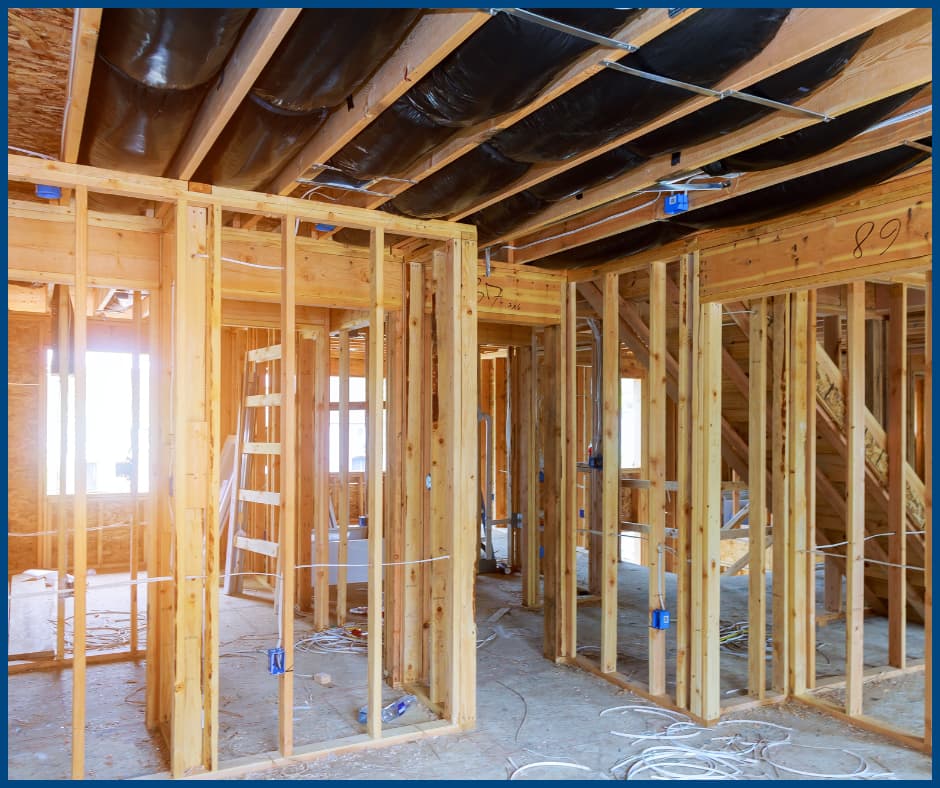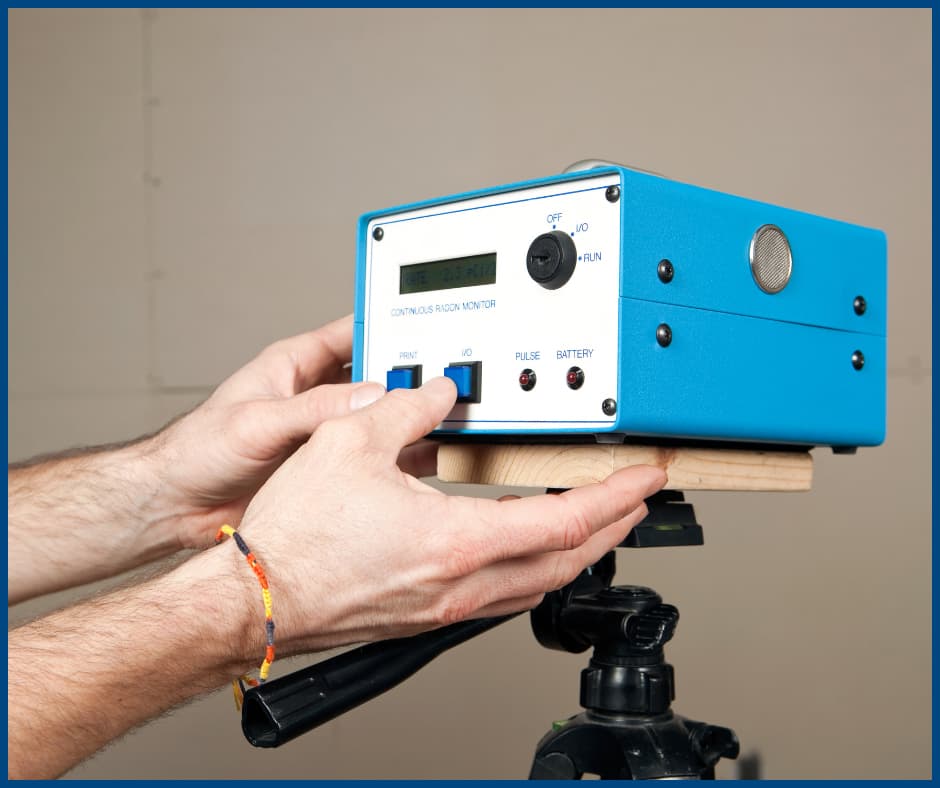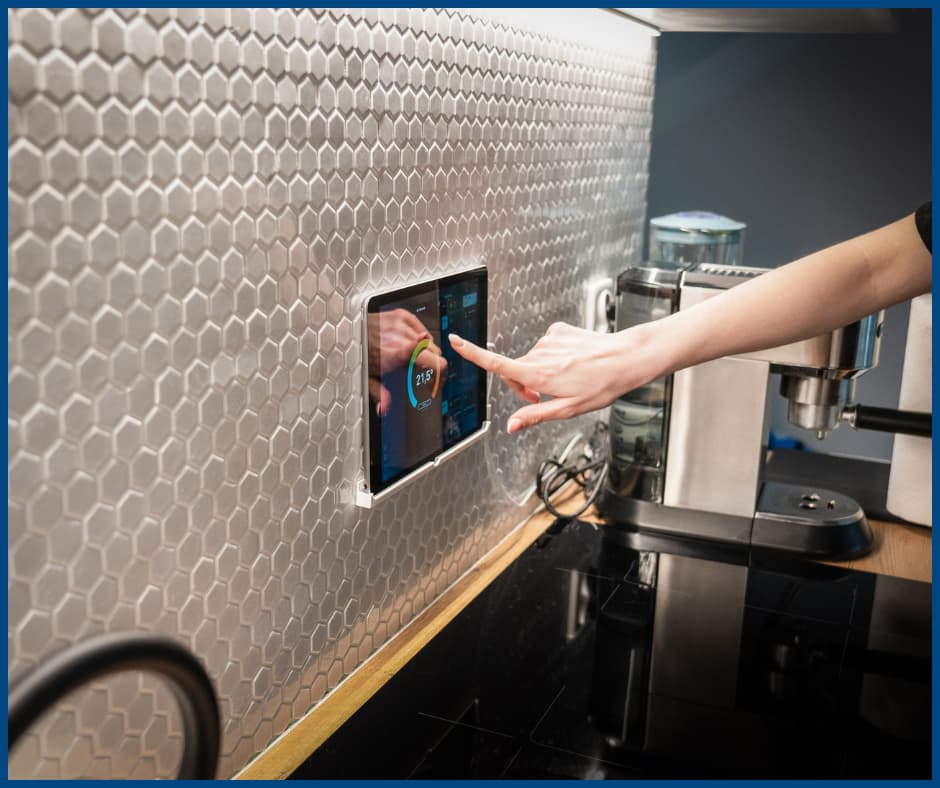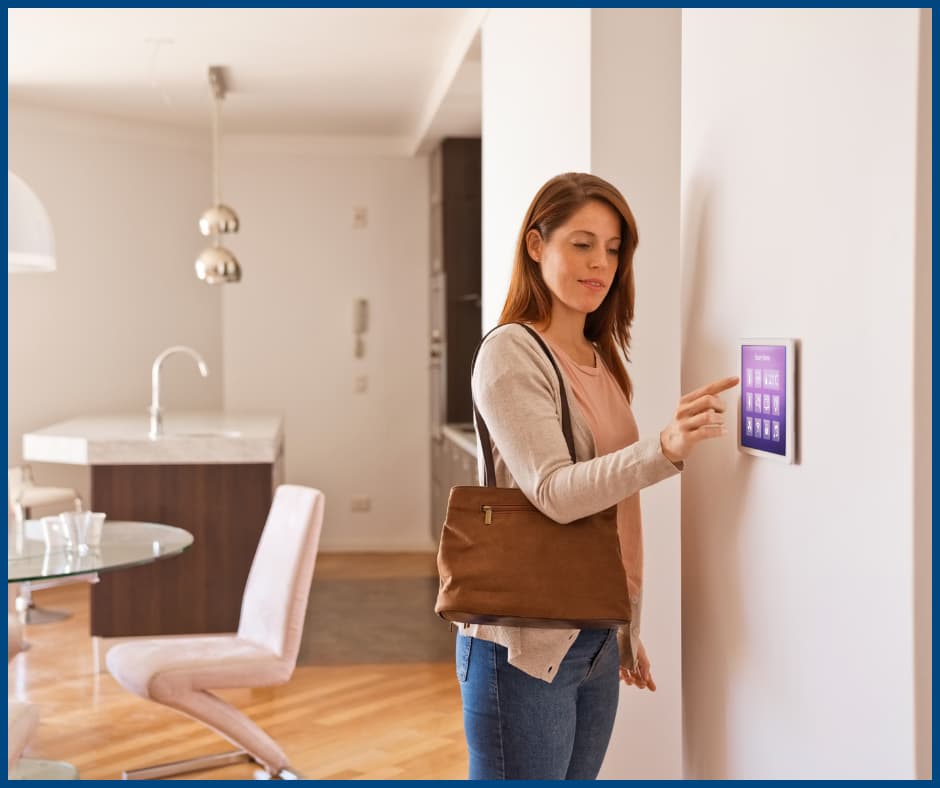The Importance of a Home Inspection: For Both New Construction and Older Homes
Buying a home is a major milestone, and ensuring it’s a safe, sound investment is essential. Whether you’re purchasing a newly built property or a classic older home, understanding the importance of a home inspection is critical for making an informed decision.
Why a Home Inspection is Crucial for New Construction
Even brand-new homes can have hidden issues. Construction projects involve multiple contractors, tight timelines, and countless details—creating opportunities for mistakes. A home inspection for new construction can help identify these issues early, ensuring your new home meets safety standards and your expectations.
Key inspection phases for new construction include:
- Framing and Sheathing: Verifying the home’s structural foundation during construction.
- Pre-Drywall Inspections: Checking systems like plumbing and electrical before walls are sealed.
- Final Walkthrough Inspections: Ensuring everything is ready for move-in.
- 11-Month Warranty Inspections: Catching problems before the builder’s warranty expires.
Why Older Homes Need a Home Inspection
Older homes often boast character and charm, but they can also come with hidden surprises. From outdated electrical systems to potential foundation concerns, an inspection can reveal important details that might not be visible during a casual walkthrough.
A home inspection for older homes often identifies:
- Aging infrastructure, such as plumbing or HVAC systems.
- Structural issues like foundation cracks or roof wear.
- Health risks, such as mold or asbestos.
Understanding the importance of a home inspection for older homes can save buyers from unexpected repairs and costs down the line.
The Benefits of a Professional Home Inspection
Whether your future home is new or old, a professional inspection offers:
- Peace of Mind: Know exactly what you’re investing in.
- Negotiation Power: Address repair concerns before closing.
- Cost Savings: Catching problems early reduces long-term expenses.
Choose AmeriSpec for Your Inspection Needs
At AmeriSpec Inspection Services, we understand the importance of a home inspection. Since 1995, we’ve conducted over 59,000 inspections, providing homeowners with reliable information about their properties. Our team evaluates more than 400 aspects of a home and offers comprehensive reports complete with digital photos.
With added benefits like our FREE 90-Day Guarantee, a partnership with HomeBinder, and tools to make your homeownership experience seamless, AmeriSpec delivers more than just inspections—we deliver peace of mind.
Ready to ensure your home is everything you hoped for? Schedule your inspection today at www.amsde.net.
Ice Dams: The Cold Truth About Roof Damage and Prevention
Winter can be a beautiful season, but it can also bring challenges for homeowners. One of the most common winter-related issues is the formation of ice dams. These frozen ridges of ice along the edges of your roof may look picturesque, but they can cause significant damage to your home if not addressed. Let’s dive into how they form, why they pose a risk to your home, and what you can do to prevent them.
What Are Ice Dams?
An ice dam is a ridge of ice that forms along the edge of a roof, preventing melting snow from draining off. This trapped water can seep under shingles, leak into your home, and cause damage to ceilings, walls, insulation, and more.
How Do Ice Dams Form?
Ice dams occur when certain conditions come together:
-
Heat Escape from the Home: Warm air rises and escapes through the roof, causing snow on the roof to melt.
-
Refreezing at the Roof Edge: As the melted snow flows down the roof, it encounters colder areas near the roof’s edge, where it refreezes into ice.
-
Snow Accumulation: Heavy snowfall followed by cycles of melting and freezing creates the perfect environment for ice dam formation.
Why Ice Dams Are a Problem
They can lead to:
- Roof Damage: Prolonged ice buildup can loosen shingles and gutters.
- Water Leaks: Meltwater trapped behind the dam can seep into your home.
- Insulation Issues: Moisture from leaks can damage attic insulation, reducing energy efficiency.
- Mold Growth: Water intrusion can create a breeding ground for mold, impacting indoor air quality.
How to Prevent Ice Dams
Preventing ice dams starts with maintaining your roof and managing heat loss in your home:
- Improve Attic Insulation: Proper insulation helps keep warm air from escaping into the attic.
- Seal Air Leaks: Ensure gaps around vents, chimneys, and ducts are sealed to prevent heat escape.
- Ventilate Your Roof: Proper roof ventilation maintains consistent temperatures, reducing the risk of melting snow.
- Remove Snow Safely: Use a roof rake to remove excess snow before it melts and refreezes.
When to Seek Professional Help
If you’re dealing with recurring ice dams or suspect water damage, it’s wise to consult a professional. They can assess your roof and attic for underlying issues and provide tailored solutions to protect your home.
Conclusion
Ice dams are more than a seasonal nuisance—they can cause costly damage to your home if left unaddressed. By understanding how they form and taking preventative measures, you can protect your home from winter’s icy grip.
10 Essential Marketing Automation Tips for Small Businesses
This is where the ChatGPT generated content will go. For now, using static content to test the scheduled publishing feature.
Introduction
Marketing automation can transform how small businesses operate…
Tip 1: Start with Email Marketing
Email marketing automation is the easiest entry point…
Understanding a Framing & Sheathing Inspection: A Crucial Step in Your New Home’s Construction
Building a new home is an exciting journey, but it comes with several critical steps to ensure your home is safe and durable. One of these essential steps is the Framing and Sheathing Inspection. This inspection happens early in the construction process and focuses on your home’s foundational structure. Let’s explore why this inspection matters and what it involves.
What Is a Framing & Sheathing Inspection?
The Framing and Sheathing Inspection takes place after the framework of your home (the framing) and its protective outer layer (the sheathing) are installed, but before insulation and drywall are added.
In other words, it’s like checking the bones and outer shell of your home to ensure they are properly in place. The framing is the wooden or steel skeleton that supports everything, while the sheathing adds stability and weather resistance.
Because this phase happens before the walls are closed up, it’s the perfect time to identify and correct any issues. This way, you can avoid costly repairs down the line.
What Does the Inspection Cover?
During this inspection, the inspector will evaluate several key areas to ensure your home is on track:
- Structure: First, the inspector checks that beams, studs, and joists are properly aligned and securely fastened.
- Connections: Next, they confirm that nails, screws, and other fasteners meet safety standards and building codes.
- Doors and Windows: Additionally, openings are reviewed to ensure proper size, alignment, and sealing for doors and windows.
- Floors and Roof: The inspector also examines floor joists and roof trusses to ensure they are stable and correctly installed.
- Water Protection: Finally, they verify that moisture barriers are properly installed to prevent leaks and water damage.
Each of these steps works together to ensure the structural integrity of your home, giving you confidence that everything is being done right.
Why Is This Inspection Important?
The framing and sheathing are the foundation of your home’s strength and stability. Without a thorough inspection, hidden issues can lead to uneven walls, drafts, or even serious structural damage over time.
By investing in a Framing and Sheathing Inspection, you:
- Catch mistakes early, while fixes are easier and less expensive.
- Gain peace of mind knowing your home is built to last.
In the long run, this step saves you time, money, and stress by preventing problems before they start.
Why Choose AmeriSpec?
At AmeriSpec Inspection Services, we specialize in detailed Framing and Sheathing Inspections. First and foremost, our certified inspectors bring years of experience to every inspection. Additionally, we provide clear, comprehensive reports with photos to help you understand the results.
Our focus is on helping you build a safe and secure home that will stand the test of time. When you choose AmeriSpec, you’re choosing quality, reliability, and peace of mind.
Get Started Today
Don’t let hidden problems derail your dream home. Instead, take the proactive step of scheduling a Framing and Sheathing Inspection with AmeriSpec today. You can visit us at www.amsde.net to book your inspection.
Understanding Radon and Its Impact on Your Home
When it comes to your home’s safety, radon testing is one of the most important steps you can take. Radon is an invisible, odorless gas that can pose serious health risks, often accumulating in homes without any noticeable signs. Testing your home for radon ensures that you and your family are protected from its potential dangers.
What is Radon?
Radon is a naturally occurring radioactive gas produced by the breakdown of uranium in soil, rock, and water. It can seep into homes through cracks in floors, walls, and foundations, accumulating in spaces like basements and crawlspaces. Because radon is colorless and odorless, it can remain undetected without professional testing.
Radon levels vary depending on geographic location, soil composition, and even the construction type of your home. Some areas have a higher prevalence of radon due to naturally occurring uranium deposits. Regardless of where you live, every home is at risk, making regular radon testing a crucial part of homeownership.
The Health Risks of Radon
Radon is a silent threat with significant health consequences. According to the Environmental Protection Agency (EPA), radon exposure is the leading cause of lung cancer among non-smokers and the second leading cause overall. Prolonged exposure to elevated radon levels can lead to lung damage over time, even in small amounts. Children are especially vulnerable due to their faster breathing rates and developing lungs, which makes radon testing an essential step for families.
Signs That You Should Test for Radon
- You’ve Never Tested Your Home Before: If your home has never undergone testing, now is the time to start.
- You’ve Made Structural Changes: Renovations or structural updates may create new entry points for radon.
- You’re Buying or Selling a Home: Many real estate transactions now include radon testing as part of the inspection process.
How Radon Testing Works
Professional testing involves using advanced detection equipment to measure radon levels in your home. At AmeriSpec, our inspectors deliver accurate results, ensuring that any risk of radon is identified. Our process is thorough, efficient, and tailored to provide homeowners with clear and actionable information.
If Radon is Found: How is it Solved?
If testing reveals elevated radon levels, the good news is that it can be mitigated effectively. The most common solution is a radon mitigation system, designed to vent radon gas safely outside your home. Here’s how it works:
- Sub-Slab Depressurization System: This system uses a fan and piping to draw radon from beneath the foundation and vent it outdoors. This is the most effective method for reducing radon levels in homes with basements or slab foundations.
- Sealing Cracks and Gaps: To minimize radon entry, cracks in the foundation, floors, and walls are sealed. This complements the mitigation system but is not sufficient as a standalone solution.
- Crawlspace Ventilation: Homes with crawlspaces may benefit from increased ventilation or installing a vapor barrier to reduce radon entry.
Once a mitigation system is installed, periodic checks ensure it continues to operate effectively, keeping radon levels in your home low and safe.
The Benefits of Radon Testing
Testing offers more than just peace of mind—it’s an investment in your family’s health and your home’s value. Homes with documented radon testing and mitigation systems can appeal more to buyers, demonstrating a proactive approach to safety.
Why AmeriSpec is Your Trusted Partner for Radon Testing
At AmeriSpec, we specialize in comprehensive testing services designed to identify radon in your home. Our inspectors use cutting-edge equipment to provide accurate results for you and your family.
By choosing AmeriSpec, you’re taking an essential step toward creating a healthier, safer living environment. Whether you’re a homeowner, buyer, or seller, testing is a simple yet critical process that can make all the difference in protecting what matters most.
Don’t wait until it’s too late. Schedule professional radon testing with AmeriSpec today by visiting www.amsde.net or contacting our team to learn more at 302-996-0405.
Smart Homes: Are They Really Smart?
Smart homes are no longer a futuristic concept—they’re here, transforming the way we live. From controlling lights with a voice command to remotely locking doors through a mobile app, the technology is undeniably convenient. But as with any innovation, it’s worth asking: are smart homes really as smart as they seem?
What Makes a Home Smart?
A smart home is equipped with devices and systems that can be automated or controlled remotely. Common features include:
- Smart Thermostats: Adjust temperature settings based on preferences or occupancy.
- Lighting Systems: Customize brightness and colors through apps or voice assistants.
- Security Features: From doorbell cameras to motion detectors, these systems provide enhanced protection.
- Integrated Appliances: Think refrigerators that track groceries or ovens you can preheat on the way home.
These technologies are designed to make life easier, but there are factors to consider before embracing this digital upgrade fully.
The Benefits of Smart Homes
- Convenience: Smart devices eliminate mundane tasks, like manually adjusting lights or thermostats.
- Energy Efficiency: Automated settings help reduce waste by optimizing energy usage.
- Increased Security: Real-time alerts and remote monitoring can provide peace of mind.
- Customization: Tailor your living environment to match your habits and preferences.
Potential Drawbacks
While smart homes offer undeniable advantages, they’re not without challenges:
- Cost: Setting up a smart home can be expensive, especially for advanced systems.
- Privacy Concerns: Many smart devices collect data, raising questions about who has access to your information.
- Complexity: Not everyone finds these systems intuitive, and troubleshooting issues can be frustrating.
- Dependence on Connectivity: Internet outages can render many devices useless, highlighting a reliance on stable networks.
Are Smart Homes Worth It?
The value of a smart home depends on individual priorities. For tech-savvy homeowners, the integration of these devices can enhance daily routines. However, for those hesitant about technology or concerned about privacy, the shift may feel less appealing.
How to Build a Balanced Smart Home
If you’re considering upgrading to a smart home, take a gradual approach:
- Start Small: Try a single smart device, like a speaker or thermostat, before committing to a full system.
- Prioritize Security: Use strong passwords and enable two-factor authentication on all devices.
- Understand the Tech: Familiarize yourself with the features and limitations of each system.
- Keep It Practical: Focus on devices that genuinely simplify your life rather than adding unnecessary complexity.
The Verdict
Smart homes are undeniably innovative, but they’re not a one-size-fits-all solution. Their intelligence lies in how well they align with your lifestyle and preferences. For some, they represent the pinnacle of modern living. For others, the technology might not yet feel indispensable.
Are smart homes truly smart? The answer depends on how you define “smart.” If convenience, efficiency, and customization fit your criteria, then yes—smart homes might just live up to their name.
